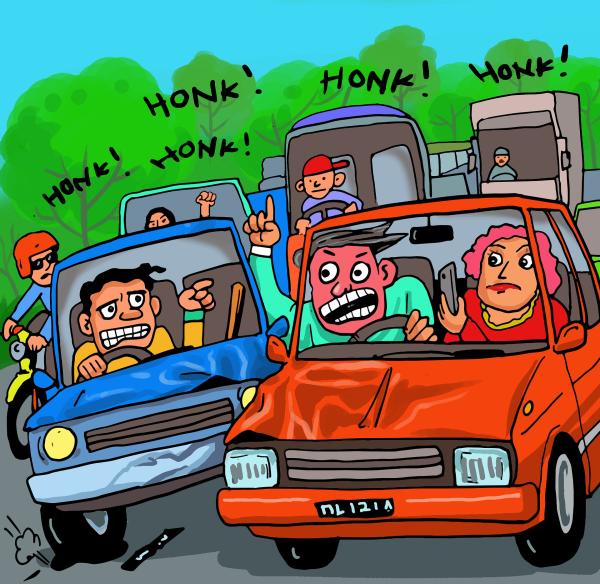“anybody driving slower than you is an idiot, and anyone going faster than you is a maniac.”
– George Carlin
Aggressive driving is thought to be related to the frustration implicit in George Carlin’s remark. For some, that aggression, termed instrumental, is designed to get around the impediment; in other cases, hostile aggression is meant to vent anger. For this research, the definition was
“any driving behavior that intentionally (whether fueled by anger or frustration or as a calculated means to an end) endangers others psychologically, physically, or both.”
The research goal was to understand, from a meta-analysis, what measures were made for aggressive driving and how that may differ from normal driving. The authors winnowed 1,400+ studies to 31 studies reflecting 34 experiments that represent the dataset.
There were many “driving performance measures” considered, including vehicle speed, lateral control (the weaving within a lane), driving errors, time-related measures like response time, risk-taking behavior like yellow light crossing, and measures of vehicular control like gas pedal position.
- Mean speed and overall errors were the most frequently measured.
- Aggressive drivers drive about 2.5 miles/hr faster and make 2.51 more driving errors than “driver[s] in a natural state.”
The relationship between increased speed, driving errors, and accidents is, with all real-world issues, complex and entangled. But perhaps we can most easily agree that driving errors play a role. Speed may not be as directly related, but again if and when there is a collision higher speeds result in more damage. Aggressive driving is unsafe driving.
Why we choose to drive aggressively in response to frustration remains unclear. The researchers suggested that increasing speed is one way to escape from a frustrating situation – I have done that. The increase in driving errors may be a cognitive distraction; you can’t pay as much attention to the road when you are screaming at the driver next to you. I am not a multi-tasker, and having driven in a “carry” state, I think being polite is safer.
In the future, how will autonomous vehicles identify and respond to the aggressive driving of those commanding them, or cars still relying on humans at the wheel? Will a vehicle that senses your increasing frustration, in the words of one of the authors, “deploy calming methods, such as altering the cabin noise level, playing relaxing music, or ultimately reducing the speed of the vehicle.” Will your autonomous car sense the aggressive driving around them and give those drivers a “wider berth?” That remains unknown.
Much digital ink has been spilled over the arrival of intelligent artificial intelligence and the worry that humans will be displaced from their self-proclaimed center of the universe. Instead of worrying about SkyNet, we should consider day-to-day applications of artificial intelligence, like how our car will identify and respond to aggressive driving.
Source: The relationship between aggressive driving and driver performance: A systematic review with meta-analysis Accident Analysis and Prevention DOI: 10.1016/j.aap.2023.106972




